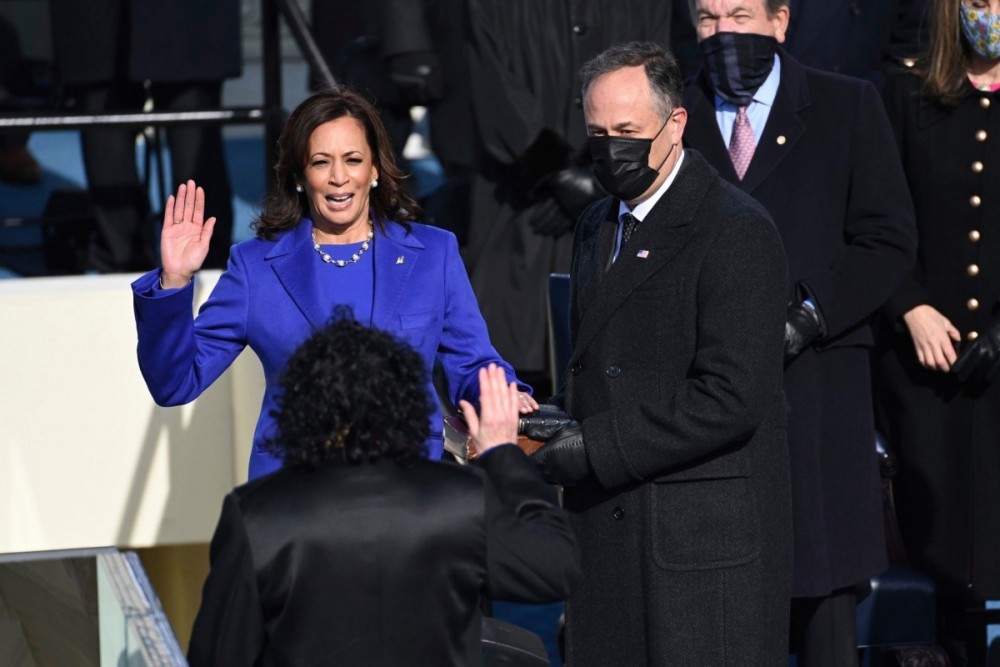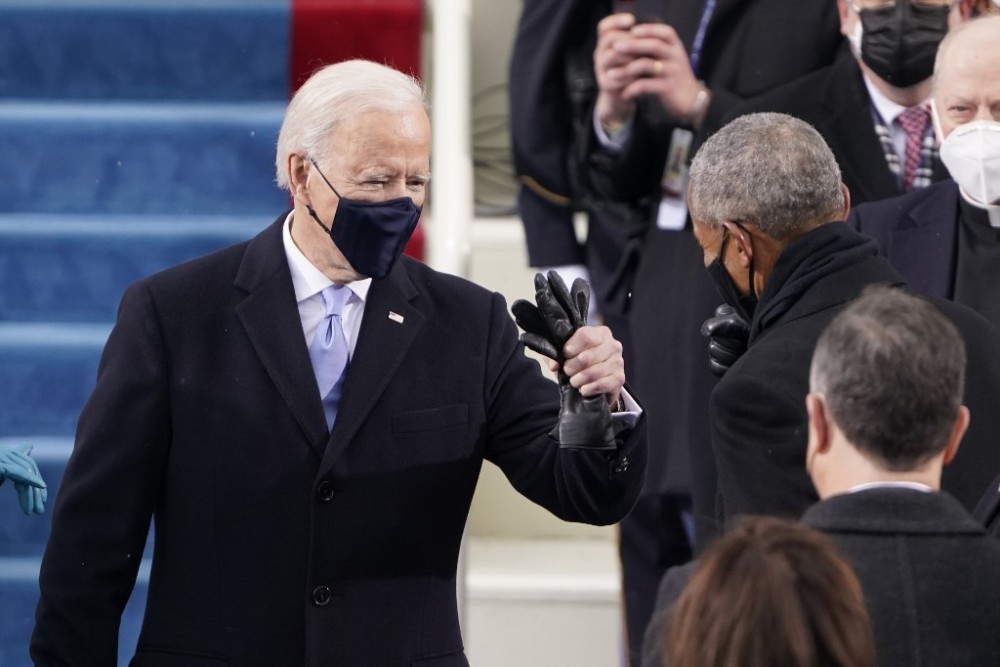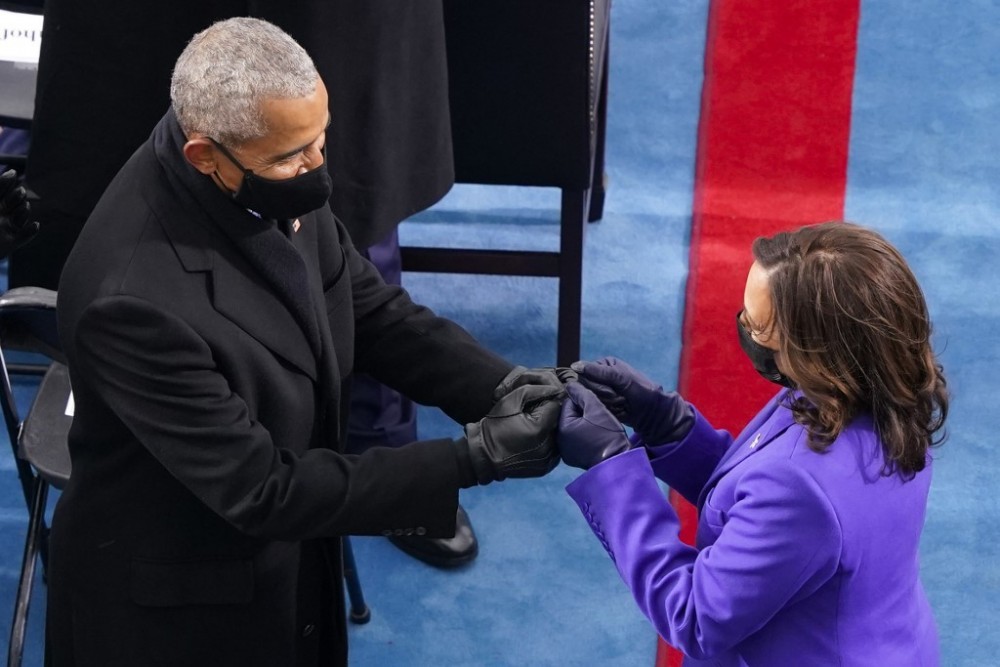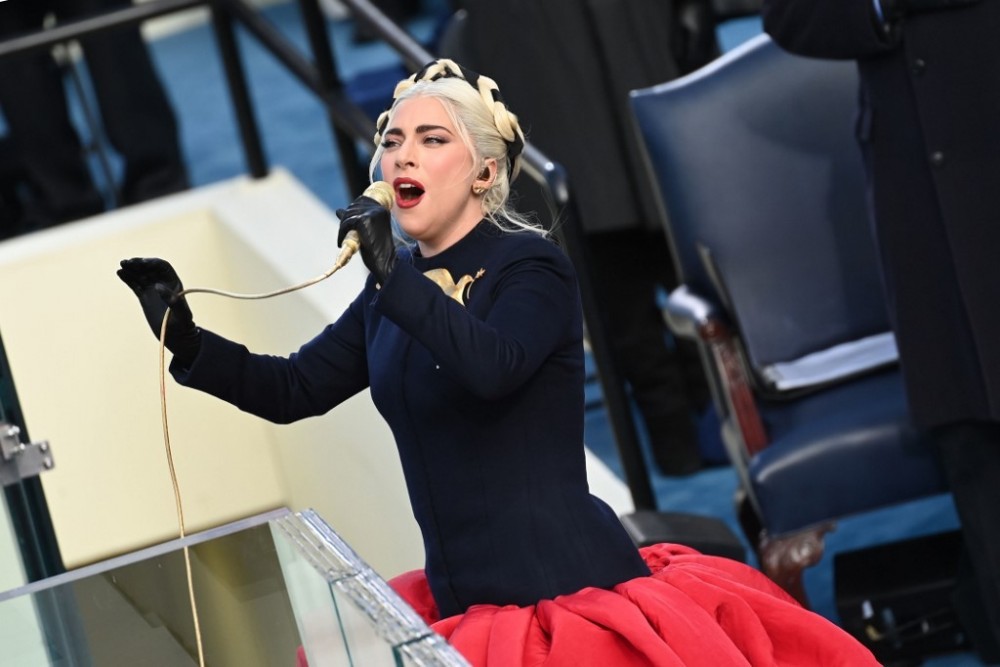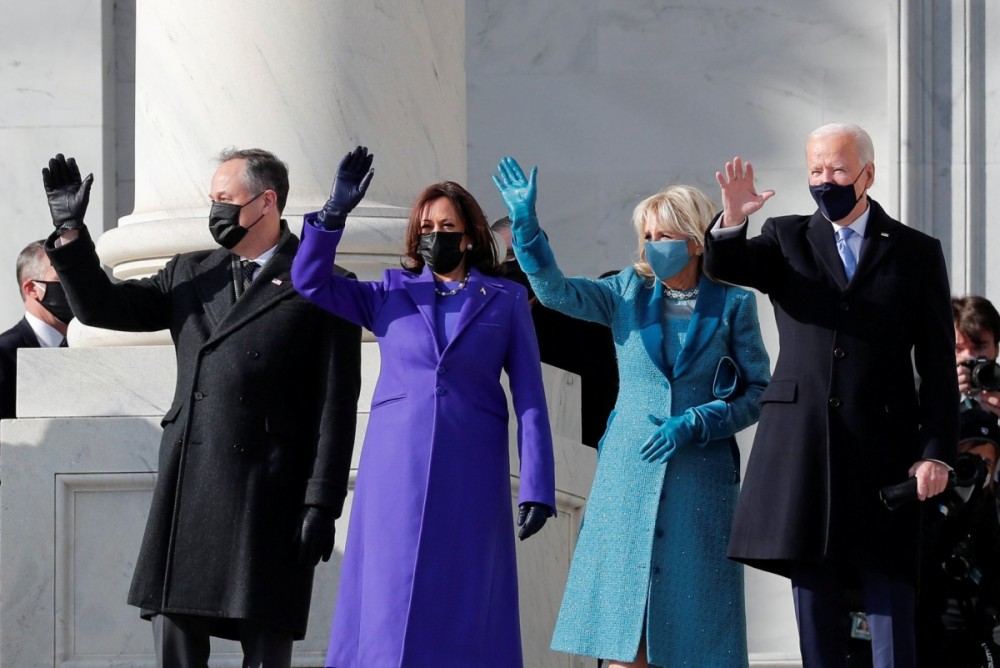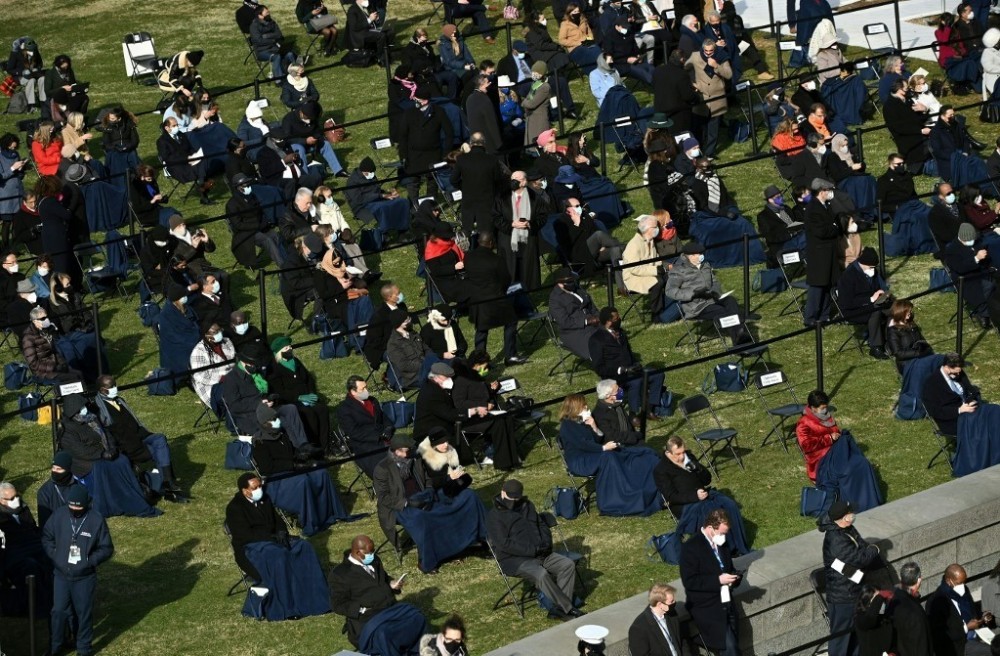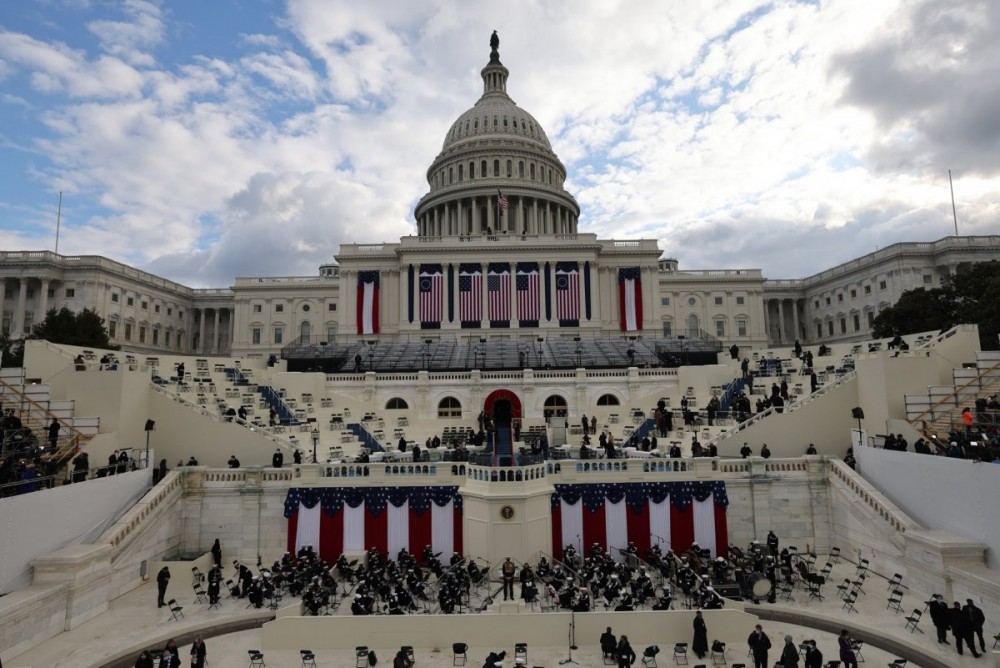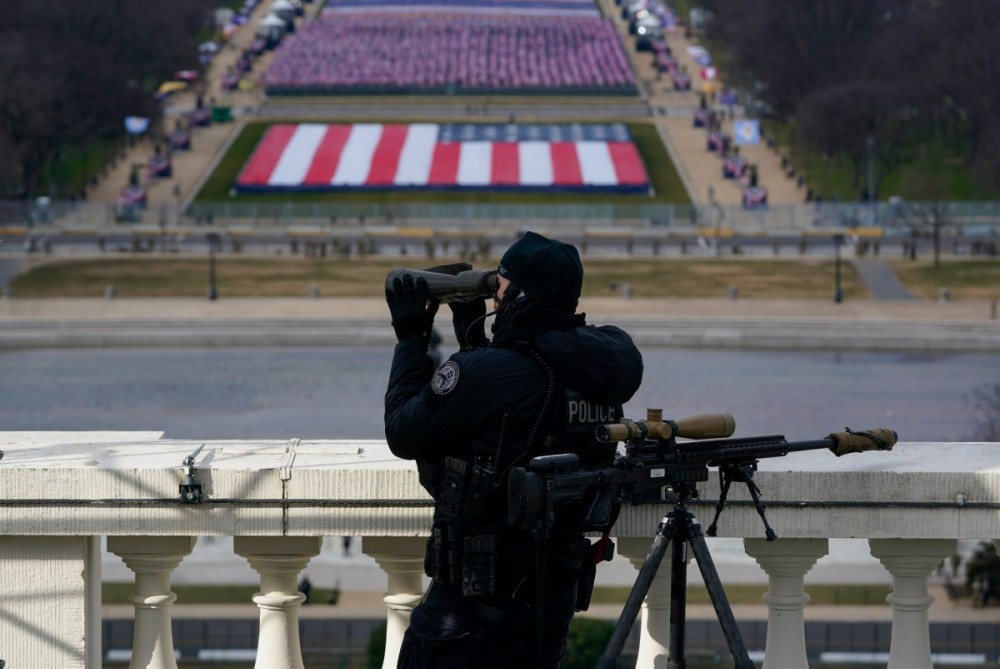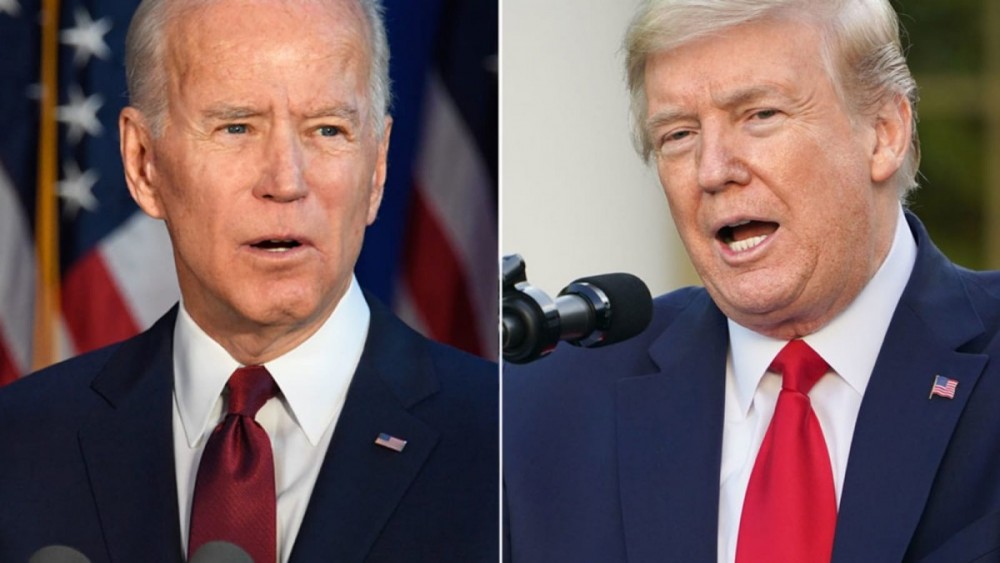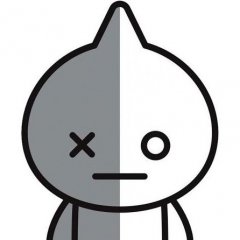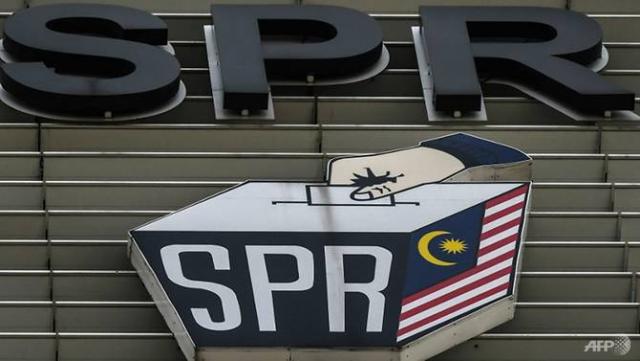Search the Community
Showing results for tags 'ELECTION'.
-
https://www.straitstimes.com/politics/parliament-sets-out-duties-and-privileges-of-leader-of-the-opposition-pritam-singh?utm_source=STSmartphone&utm_medium=share&utm_term=2020-07-28+17%3A07%3A04 Parliament sets out duties and privileges of Leader of the Opposition Pritam Singh SINGAPORE - As the official Leader of the Opposition (LO), Workers' Party chief Pritam Singh will be given certain parliamentary privileges like the right of first response among MPs. He will also have the right to ask the lead question to ministers on policies, Bills and motions, subject to existing speaking conventions, the offices of the Speaker of Parliament and the Leader of the House said in a joint statement on Tuesday (July 28). The statement set out the duties of the new role, as well as the parliamentary privileges and resources accorded to Mr Singh, who is an MP for Aljunied GRC. He will receive confidential briefings by the Government on "select matters of national security and external relations, and in the event of a national crisis or emergency", the statement said. As the LO, Mr Singh will also have more time for his speeches, equivalent to that given to political office-holders. According to the Standing Orders of Parliament, all MPs are allowed to speak for 20 minutes in response to questions raised, and can address a committee of the whole of Parliament for up to 10 minutes. Ministers and parliamentary secretaries are entitled to speak for up to 40 minutes. In terms of additional resources, Mr Singh will receive an allowance that is double that of an elected MP, or $385,000 a year, the statement said. As for staff support, he will receive additional allowance to hire up to three additional legislative assistants, on top of the allowance that all MPs receive to hire one legislative assistant and a secretarial assistant. He will also be provided a secretary to support him administratively with parliamentary business. Mr Singh will have an office and the use of a meeting room in Parliament House.
- 761 replies
-
- 5
-

-
Ok start ball rolling on this! From my pov, I see the goodies coming slowly but surely . The momentum builds up closer to 2025 and that’s when the machinery kicks in! i reckon June 2025? D day?
-
Because Joe Biden deserves a thread of his own for the next four years. WASHINGTON: Democrat Joe Biden was on Wednesday (Jan 20) sworn in as the 46th President of the United States. With his hand on a five-inch thick heirloom Bible that has been in his family for more than a century, Biden took the oath of office administered by US Chief Justice John Roberts that binds the president to "preserve, protect and defend the Constitution of the United States". Biden, 78, became the oldest US president in history at a scaled-back ceremony in Washington that was largely stripped of its usual pomp and circumstance, due both to the coronavirus and security concerns following the Jan 6 assault on the US Capitol by supporters of outgoing President Donald Trump. The norm-defying Trump flouted one last convention on his way out of the White House when he refused to meet with Biden or attend his successor's inauguration, breaking with a political tradition seen as affirming the peaceful transfer of power.
-
- 2,900 replies
-
- 4
-

-
https://www.todayonline.com/singapore/public-servants-receive-notification-election-duties-and-online-training-1868266 Notification / trainings issued!🤣 Beat metal while it is hot!😁 Covid well done???🥳🥳
-
https://www.channelnewsasia.com/asia/malaysia-general-election-polling-day-nov-19-nomination-nov-5-3014701 Malaysia election: Polling day on Nov 19, nomination day set for Nov 5 A woman casts her vote during a state election at a voting centre in Melaka, Malaysia on Nov 20, 2021. (File photo: AP/Vincent Thian) Rashvinjeet S Bedi 20 Oct 2022 12:21PM (Updated: 20 Oct 2022 12:52PM) PUTRAJAYA: Malaysia will hold its 15th General Election (GE15) on Nov 19, said the Election Commission (EC) on Thursday (Oct 20). Nomination Day will be on Nov 5, while early voting is set to be held on Nov 15, said EC chairman Abdul Ghani Salleh. "The campaigning period has been set for 14 days, from the date of nomination to 11.59pm on Nov 18," he said during a press conference. He added that a by-election for the Bugaya state seat in Sabah will also be held during the same period. Mr Abdul Ghani also said that the elections are expected to cost RM1.01 billion (US$213 million). More than 21 million people will be eligible to cast their votes during the elections. Applications for overseas postal voters will close on Oct 23, he said. On Oct 10, caretaker prime minister Ismail Sabri Yaakob announced that parliament has been dissolved, paving the way for national elections to be held before the end of the year. The states of Perak, Perlis and Pahang have also dissolved their legislatures and state polls will be held concurrently with the national elections. Six other states – three under the Pakatan Harapan (PH) coalition and the other three led by Parti Islam Se-Malaysia (PAS) – decided not to dissolve their assemblies for now. The three states under PH are Selangor, Negeri Sembilan and Penang while the states under PAS rule are Kelantan, Terengganu and Kedah. PAS is a member of the Perikatan Nasional (PN) coalition together with Parti Pribumi Bersatu Malaysia (Bersatu), among others. The state assemblies of Sabah, Sarawak, Johor and Melaka are out of the equation as polls were held recently. An election had not been due until September 2023, but Mr Ismail Sabri had been under pressure from some factions of his ruling coalition to hold the vote earlier. On Sep 30, the United Malays National Organisation (UMNO) supreme council decided that parliament must be dissolved soon so that GE15 can be held this year. UMNO president Ahmad Zahid Hamidi, who is facing 47 charges of criminal breach of trust, corruption and money laundering, had been very vocal in pushing for snap polls, ostensibly to seek a fresh mandate from the people. UMNO’s call for an early GE15 has been criticised by the opposition and Mr Ismail Sabri’s own Cabinet members as Malaysia’s Meteorological Department has warned of floods during the north-east monsoon season, which typically starts in November and ends in March. Following the dissolution of parliament, Malaysia’s King Al-Sultan Abdullah Ri'ayatuddin Al-Mustafa Billah Shah said he had no choice but to consent to the dissolution of the parliament. In a statement on Oct 10, Comptroller of the Royal Household of Istana Negara, Ahmad Fadil Shamsuddin, said that the ruler was disappointed with the current political developments in the country. Related: Malaysia election: What we know about the political parties’ strategies so far BN's days of fielding a 'songkok' and expecting easy election wins in Malaysia are gone: Ismail Sabri CNA Explains: How does postal voting work for Malaysia’s 15th general election? There are 222 seats in the Lower House. In GE14, PH won 113 seats. At that time, its component parties were Parti Keadilan Rakyat, Democratic Action Party, Parti Amanah Negara and Bersatu. Barisan Nasional won 79 seats while PAS won 18 seats. Twelve seats were won by other parties and independent candidates. The PH administration lasted for 22 months before it fell apart due to infighting. Source: CNA/rv(aw)
- 935 replies
-
- 5
-

-
- malaysia election
- election
-
(and 2 more)
Tagged with:
-
Ma is leading at this time with a slim lead
-
https://www.channelnewsasia.com/asia/malaysia-parliament-dissolved-election-ge15-ismail-sabri-2998901 PM Ismail Sabri announces dissolution of Malaysia parliament, paving the way for snap polls to be held The dissolution paves the way for Malaysia's 15th general election to be held this year. PM Ismail Sabri announces dissolution of Malaysia parliament, paving the way for snap polls to be held In this photo released by Malaysia's Department of Information, Malaysia's Finance Minister Zafrul Aziz, center left, delivers the 2023 budget speech at parliament in Kuala Lumpur, Malaysia, Friday, Oct. 7, 2022. (Photo: Famer Roheni/Malaysia…see more Amir Yusof Amir Yusof 10 Oct 2022 03:19PM (Updated: 10 Oct 2022 03:40PM) Bookmark Share KUALA LUMPUR: Malaysian Prime Minister Ismail Sabri Yaakob announced on Monday (Oct 10) that parliament has been dissolved, paving the way for national elections to be held before the end of the year. Speaking during a televised national address at 3pm, Mr Ismail Sabri said he sought consent from the king at noon on Sunday to dissolve parliament and his request was accepted. Advertisement "I encourage all state governments, except the governments of Sabah, Sarawak, Johor and Melaka to dissolve their respective state assemblies at the same date as the General Election at the federal level, even though some states have decided not to dissolve" he said. "It is preferable for (both state and national polls) to be held at the same time so that the people are not burdened, and to ensure that the process of democracy runs smoothly and costs are reduced," added Mr Ismail Sabri. The prime minister said that the stipulated dates for nomination day, polling day and other related matters will be determined by the Election Commission. "With this announcement, the mandate is returned to the people," he said. "The people's mandate is a powerful antidote for the country to achieve political stability and create a strong, stable and respected government after GE15." Advertisement There has been intense speculation about the dissolution of parliament to pave the way for the 15th general election (GE15). Last Friday, Mr Ismail Sabri’s government unveiled a budget of RM372.3 billion (US$80.06 billion) for 2023 amid an uncertain global environment and expected slow growth. It is one of the largest budgets in Malaysia's history. Related: 5 key takeaways from Malaysia’s 2023 budget An election is not due until September 2023, but Mr Ismail Sabri has been under pressure from some factions of his ruling coalition to hold the vote earlier. On Sep 30, the United Malays National Organisation (UMNO) supreme council decided that parliament must be dissolved soon so that GE15 can be held this year. UMNO president Ahmad Zahid Hamidi, who is facing 47 charges of criminal breach of trust, corruption and money laundering, has been very vocal in pushing for snap polls, ostensibly to seek a fresh mandate from the people. Advertisement UMNO’s call for an early GE15 has been criticised by the opposition and Mr Ismail Sabri’s own Cabinet members as Malaysia’s Meteorological Department has warned of floods during the north-east monsoon season, which typically starts in November and ends in March. The presidential council of the main opposition bloc Pakatan Harapan said in a statement last Wednesday that the three states controlled by the coalition - Selangor, Negeri Sembilan and Penang - will only dissolve their state assemblies next year due to concerns over floods. State assemblies led by Parti Islam Se-Malaysia (PAS) - Kelantan, Terengganu and Kedah - will also not be dissolved if a general election is held soon, said party deputy president Tuan Ibrahim Tuan Man last Wednesday, according to a report by Free Malaysia Today. Related: Not the right time to hold polls during flood season in Malaysia, says Khairy No issue if Malaysia’s general election is held during monsoon season: UMNO president Ahmad Zahid Perikatan Nasional (PN) Cabinet ministers sent a letter to the king to voice their objections over holding GE15 this year, Mr Tuan Ibrahim said then. PN, which comprises Parti Pribumi Bersatu Malaysia and PAS, is a component of the ruling coalition together with UMNO-led Barisan Nasional. Advertisement In response to concerns about holding GE15 during floods, UMNO’s Ahmad Zahid had criticised the opposition for using the floods and inflation narrative to resist an early general election, labelling the flood narrative as a “myth”. Source: CNA/ya(ih)
- 77 replies
-
- 5
-

-
- malaysia election
- polls
-
(and 2 more)
Tagged with:
-
Suddenly news feed and social media flooded with PAP speeches.
-
https://asia.nikkei.com/Spotlight/Society/Indian-Dalits-leave-Hinduism-in-droves-in-blow-to-ruling-BJP?utm_campaign=GL_asia_daily&utm_medium=email&utm_source=NA_newsletter&utm_content=article_link&del_type=1&pub_date=20221107123000&seq_num=20&si=44594 Indian Dalits leave Hinduism in droves in blow to ruling BJP Thousands embrace Buddhism as Modi's party's rights record faces scrutiny Indian Dalits convert to Buddhism en masse at an event in New Delhi on Oct. 5. (Photo courtesy of Rajendra Pal Gautam's Twitter account) TARUSHI ASWANI, Contributing writerNovember 6, 2022 10:45 JST NEW DELHI -- Recent mass conversions to Buddhism by Indian Dalits have underscored anew the fears and frustrations of a community of about 200 million people considered to be at the bottom of the traditional Hindu caste system. "We refuse to be punished any longer," said Ramji Lal, 34, who attended a conversion event in New Delhi on Oct. 5. He was one of a crowd of around 8,000, according to organizers, who made a point of leaving Hinduism. Such conversions are seen as a protest by people commonly known as "untouchables" due to their descent, leading to a life of exclusion and often abuse. On Oct. 14, in the southern state of Karnataka, more than 100 Dalit men and women did the same, throwing pictures of Hindu deities into the Krishna River to renounce their faith. Converting to Buddhism is not new for Dalits. Indeed, the Karnataka event came on the anniversary of social reformer B. R. Ambedkar's public conversion to Buddhism in 1956, a move that continues to reverberate generations later. "If you continue to remain within the fold of Hinduism, you cannot attain a status higher than that of a slave," Ambedkar said in a speech 20 years before he made the change, according to a collection of essays and speeches published on the Indian Ministry of External Affairs website. In 2013, organizers of a conversion event in the state of Gujarat claimed that 60,000 people abandoned Hinduism at once, local media reported at the time. The trend stands out given the Hindu nationalism of Prime Minister Narendra Modi's government, and raises further questions about the ruling Bharatiya Janata Party's (BJP) record on human rights, which is already under scrutiny for alleged discrimination against Muslims, an accusation the BJP denies. The BJP appears to have mixed views on such conversions, but after the Oct. 5 event in the capital, parliamentarian Manoj Tiwari tweeted that the event was "anti-Hindu," and criticized a Delhi legislator and minister from the Aam Aadmi Party (AAP) for attending. The Delhi BJP chief urged the AAP, which runs the capital territory government, to sack the minister, Rajendra Pal Gautam, "for his attempt to stoke communal tensions and spread hatred along religious lines within the country." Gautam resigned soon afterward. The New Delhi event was organized by Mission Jai Bheem, a nonprofit group founded by Gautam that aims to establish a casteless, egalitarian society in India. Ishwar Singh, national secretary of Mission Jai Bheem, told Nikkei Asia that hatred toward Dalits forces them out of Hinduism. "Together, at least 8,000 Dalits accepted Buddhism. Does it not show the degree of our suffering?" he said. Singh argued that religious polarization in India under the current government demands bold steps by oppressed communities to claim their rights and freedoms. While the caste system has existed in India for centuries, Singh and others argue that the rise of the BJP has brought a parallel rise in crimes against Dalits, especially during Modi's second term, which began in 2018. A report by the National Dalit Movement for Justice (NDMJ), a coalition of rights activists and academics, found that anti-Dalit crimes rose 27.3% in 2018 compared with 2009. In 2021, India reported six crimes against Dalits every hour, according to the National Crime Records Bureau, with the total number of cases increasing to 50,900 from 50,291 in 2020. A Dalit group holds a protest in 2020 after the death of a rape victim in New Delhi. © Reuters The past few months have seen several shocking reports: a Dalit man killed in Uttar Pradesh, with family members alleging that he was attacked for touching an idol; another man allegedly killed in Uttarakhand by in-laws over a cross-caste marriage; a teacher arrested over the death of a 9-year-old Dalit boy, who was allegedly beaten for drinking water from a pot used by upper castes in Rajasthan. Many feel the BJP government is not doing enough to stop such crimes and change attitudes, or is even perpetuating them. In 2018, in Uttar Pradesh's Kanpur Dehat, 10,000 Dalits embraced Buddhism under Savitri Bai Phule, a member of parliament who quit the BJP alleging the party was engaged in "divisive politics." Still, in a community of 200 million, views among Dalits are bound to differ. Some support the BJP and disagree with the conversion movement. Jagdish Prasad Maurya, a Dalit who belongs to the BJP, feels there is "no need" to organize a mass conversion drive. Maurya, from Uttar Pradesh, feels the latest events were political and only designed to send a strategic message. "If they really wanted to accept Buddhism, why do it at an event, why not privately?" Countering such arguments, Prashant Kanojia, a political leader and former journalist who became a Buddhist a few years ago, said: "It is important to understand why large-scale conversions are taking place. Every year conversions are happening, but not at this scale." Quoting Ambedkar, Kanojia said, "It has been said that Hinduism is a building without a window. Meaning to say that if you are born into a caste, irrespective of your talent, merit, you will be forced to live a certain way, and if you're a Dalit, you're basically untouchable." Converts say that life may improve in some respects afterward, though society also reminds them of their origins. In any case, it is their way of saying no to a religiously ordained system of discrimination. Senior BJP officials, meanwhile, defend the party and say it looks out for Dalits. Alok Vats, a BJP leader, noted that discrimination is hardly confined to states the party controls. "Look at Rajasthan," he said, referring to a state ruled by the opposition Indian National Congress. "Are Dalits not suffering there?" "This whole conversion event [in New Delhi] was a drama by the AAP for political mileage," said Vats, an upper-caste Hindu. "This drama is only being tolerated because Hindus are accommodative." Vats insisted that the BJP has treated the Dalit community with utmost respect, noting that India's previous president was a Dalit from the party, Ramnath Kovind. Ordinary Dalits, however, suggest that such gestures have brought little change on the ground. Sonu Malla, 27, described life as a Dalit in 21st-century India this way: The upper castes "have labeled us permanently and they use this label to harass us."
-
https://www.channelnewsasia.com/world/australia-election-scott-morrison-ruling-coalition-loss-labor-party-anthony-albanese-2698001 Australia's PM Morrison concedes election defeat, Labor to form government SYDNEY: Australian Prime Minister Scott Morrison admitted defeat in national elections on Saturday (May 21) after a "difficult night" for his conservative government. "Tonight I have spoken to the leader of the opposition and the incoming prime minister, Anthony Albanese, and I have congratulated him on his election victory this evening," Morrison said in a televised speech in Sydney. He added that he would stand down as leader of the Liberal Party. The 54-year-old outgoing leader noted that voter support for major parties had fallen in the election. "I think about the upheaval that is taking place in our nation, and I think it is important for our nation to heal and to move forward," he said. Morrison's voice cracked with emotion as he thanked his wife Jennifer and his daughters, "the loves of my life". "I have no doubt under the strong leadership of our coalition, three years from now I am looking forward to the return of a coalition government." This ends eight years and nine months in power for Morrison's conservative coalition. He became prime minister in 2018 after several leadership changes. Albanese, speaking as he headed to his party celebrations, said he wanted to unite the country. "I think people want to come together, look for our common interest, look towards that sense of common purpose. I think people have had enough of division, what they want is to come together as a nation and I intend to lead that." Television stations earlier projected a win for Albanese's Labor Party as voters deserted the ruling conservative coalition in favour of climate-focused independents and smaller parties. But Labor may yet have to rely on support from the Green Party and a group of so-called "teal independents", who campaigned on policies of integrity, equality and tackling climate change. Partial results showed that Morrison's Liberal-National coalition was punished by voters in affluent urban seats and Western Australia in particular. Australian Treasurer Josh Frydenberg was poised to become one of the country's highest-ranking Cabinet ministers to ever be voted out of parliament as he acknowledged it would be difficult to cling onto his seat. Frydenberg appeared on course to be defeated in his Melbourne seat by independent Monique Ryan, a pediatric neurologist running for office for the first time, according to a projected count by the Australian Electoral Commission. "I can't see the coalition getting above 60 (seats)," the Australian Broadcasting Corp's election analyst Antony Green said in a live broadcast. Forming a government requires 76 of the 151 lower house seats. "Unless the Labor Party sat on its high horse and said 'We've got to 74, that's not 76, we're not forming government', there is no alternative government in that parliament," Green added. The Sydney Morning Herald said Albanese will become the next prime minister. Sky News projected the ruling coalition "can't win majority". Final results could take some time as counting of a record number of postal votes is completed. Centre-left Labor had held a decent lead in opinion polls, although recent surveys showed the Liberal-National government narrowing the gap in the final stretch of a six-week campaign. A Newspoll survey by The Australian newspaper out on election day showed Labor's lead over the ruling coalition dipping a point to 53-47 on a two-party-preferred basis, where votes for unsuccessful candidates are redistributed to the top two contenders. TURNING TEAL In at least five affluent Liberal-held seats, so-called "teal independents" looked set to win, tapping voter anger over inaction on climate change after some of the worst floods and fires to hit Australia. Three volunteers working for teal independent Monique Ryan, who was challenging Frydenberg, said they joined Ryan's campaign because they are concerned about the climate for the sake of their children and grandchildren. "For me, it's like this election actually feels hopeful," Charlotte Forwood, a working mother of three adult children, told Reuters. Early returns suggested the Greens had also made ground, looking to pick up to three seats in Queensland. Greens leader Adam Bandt, who retained his inner-city Melbourne seat, said climate was a major issue for voters. "There was an attempt from Labor and Liberal to bury it, and we were very clear about the need to tackle climate by tackling coal and gas." Morrison and Albanese earlier cast their votes in Sydney after making whistle-stop tours across marginal seats in the final two days of a campaign dominated by rising living costs, climate change and integrity. As Labor focussed on spiking inflation and sluggish wage growth, Morrison made the country's lowest unemployment in almost half a century the centrepiece of his campaign's final hours.
-
Even after Raeesah Khan's saga, they still decided to give up sengkang https://www.straitstimes.com/singapore/pap-unveils-three-new-faces-in-sengkang-grc? 😅
- 60 replies
-
- 10
-
.png)
-

-
https://asia.nikkei.com/Politics/Philippine-elections-2022/Who-will-succeed-Duterte-Five-presidential-contenders-to-know?utm_campaign=GL_asia_daily&utm_medium=email&utm_source=NA_newsletter&utm_content=article_link&del_type=1&pub_date=20211011190000&seq_num=14&si=44594 Who will succeed Duterte? Five presidential contenders to know Ex-cop, dictator's son, mayor, boxer and VP in running for top job in Philippines Five of the runners for the Philippine presidency, from left to right: Ronald "Bato" dela Rosa, Ferdinand "Bongbong" Marcos Jr., Francisco "Isko Moreno" Domagoso, Emmanuel "Manny" Pacquiao, and Maria Leonor "Leni" Robredo. (Source photos by AP, Reuters and EPA/Jiji) CLIFF VENZON, Nikkei staff writerOctober 11, 2021 17:47 JST MANILA -- The Philippines kicked off its election season last week with the registration of candidates for next May's polls. Over 18,000 positions are to be contested, but all eyes are on the presidential race. Some 97 people have registered their candidacies for the top role, but the election commission still has to screen hopefuls and release an official list. The public's favorite in opinion polls is Davao Mayor Sara Duterte, the daughter of the president Rodrigo Duterte. While Sara missed Friday's filing deadline, saying she would seek a third term as mayor, candidate substitutions are permitted until Nov. 15 and her supporters hope for a change of heart. Among those who have filed are Duterte's former police chief, the son of a late dictator, the mayor of Manila, a boxing champion, and the current vice president. Here are five of the registered contenders that you need to know (listed in alphabetical order of surname): Ronald "Bato" dela Rosa Polling: Not included in a Pulse Asia survey conducted Sept 6 to 11 that asked respondents who they would vote for as president. The 59-year-old senator is a former national police chief who led the early years of Duterte's drug war. He is the candidate of the ruling PDP-Laban party. His candidacy, registered just hours before Friday's deadline, was a surprise to many and has fueled speculation that he will be a placeholder for Sara Duterte should she decide to run. Dela Rosa, who served as police officer in Duterte's home patch of Davao, has denied such a suggestion. He said his candidacy had been considered by the party long before registration and hiding it from the public was just a strategy. "I am fielded by my political party PDP-Laban for reasons that they have not found anyone else who will continue the legacy of President Duterte, our fight against drugs and criminality, corruption, terrorism, and our economic recovery amid the pandemic," dela Rosa said on Friday. His vice presidential running mate is fellow first-time senator, Bong Go, Duterte's long-time aide. Ferdinand "Bongbong" Marcos Jr. Polling: Second in the Pulse Asia survey with 15%, behind leader Sara Duterte's 20% The 64-year-old son and namesake of the late dictator has launched a bid to return his family to power. His father, who ruled the country for two decades, was overthrown in the 1986 "People Power" revolution, forcing the family into exile in Hawaii. The Marcoses has since rebuilt their political fortunes, even as widespread human rights abuses and corruption during the dictatorship continue to hound them. The Oxford-educated Marcos Jr. has been a provincial governor, congressman and senator. He lost the 2016 vice presidential race to Leni Robredo by a slim margin. A Duterte supporter, Marcos Jr. said his party had wanted to adopt the president as its vice presidential candidate until he announced his retirement from politics on Oct. 2. "I will bring that form of unifying leadership back to our country," Marcos said when he declared his candidacy last week. Francisco "Isko Moreno" Domagoso Polling: Third with 13% The 46-year-old mayor of Manila styles himself as a centrist in a country still deeply divided following the election of Duterte in 2016. "I will be a healing president," Moreno said last month when he declared his bid. He is expected to capitalize on his humble beginnings, handsome looks, as well as the clean-up and infrastructure projects in the capital since entering office in 2019. "I don't belong to a large clan. I am neither a son nor a daughter of a president," he said last month in a dig at some of his rivals who are backed by political dynasties. Moreno is a former actor who was discovered by a talent scout while attending a funeral in 1993. A son of a stevedore and housewife, he grew up in the slums of Manila, where he "salvaged in restaurant garbage bins for leftovers which were repurposed by his practical mother into the family dinner," according to his official profile. As a young boy, he collected newspapers and glass bottles and sold them to junk dealers. Moreno is running with Dr. Willie Ong, a physician with 16 million followers on Facebook. Emmanuel "Manny" Pacquiao Polling: Fourth with 12% The 42-year-old boxing star hung up his gloves last month to focus on his presidential campaign. The incumbent senator recently had a fallout with President Duterte amid infighting in the ruling PDP Laban party. Pacquiao has criticized graft in the Duterte administration and warned that corrupt government officials will be jailed if he becomes president. Pacquiao is banking on his rags-to-riches life story that has inspired many and propelled his political career. "The Manny Pacquiao in front of you has been moulded by poverty," he said last month when he declared his bid. Born in Mindanao, the country's southern island and Duterte's home region, he started boxing at the age of 16 and went on to build a career with world titles in eight different weight divisions. His national hero status as a boxer, however, has yet to extend to his political career. He has been criticized as an absentee lawmaker with unimpressive legislative record. Maria Leonor "Leni" Robredo Polling: Sixth with 8% The 56-year-old incumbent vice president has clashed with Duterte on issues such as his bloody drug war and pro-China foreign policies. A former human rights lawyer, Robredo entered politics a year after the death of her husband Jesse, a good governance champion. She beat an opponent from an influential political dynasty in a congressional race. Robredo won the 2016 vice presidential race on a campaign to uplift the lives of the marginalized, but the political machinery of the former ruling Liberal Party was an advantage that she now lacks. She has been praised for her pandemic response program, which has relied on donations due to the meager budget allocated to her office. While serving as chair of the Liberal party, Robredo is running as an independent candidate. Her running mate is Sen. Francis Pangilinan, an advocate for the agriculture sector and husband of actress Sharon Cuneta. Ella Hermonio contributed to this report.
- 21 replies
-
- 1
-

-
- election
- philippines
-
(and 1 more)
Tagged with:
-
https://asia.nikkei.com/Spotlight/Asia-Insight/Duterte-s-legacy-on-the-line-as-Philippine-elections-loom?utm_campaign=GL_asia_daily&utm_medium=email&utm_source=NA_newsletter&utm_content=article_link&del_type=1&pub_date=20210928190000&seq_num=2&si=44594 Duterte's legacy on the line as Philippine elections loom Drug war, infrastructure, China pivot define his presidency CLIFF VENZON, Nikkei staff writerSeptember 28, 2021 06:00 JST MANILA -- At the U.N. General Assembly on Sept. 22, Philippine President Rodrigo Duterte talked about his war on drugs but without indulging in his usual combative "kill 'em all" rhetoric. "I have instructed the Department of Justice and the Philippine National Police to review the conduct of our campaign against illegal drugs," Duterte said in a recorded message. "Those found to have acted beyond bounds during operations shall be made accountable before our laws." Duterte's war on drugs has killed over 6,000 mostly petty suspects, according to official data -- a fraction of the estimates from other informed quarters. The bloodshed has been attracting global attention since it began in 2016, and more recently an International Criminal Court (ICC) probe. The 76-year-old Duterte's uncharacteristically measured words are a sign that he is looking to his legacy as he wraps up his six-year term in office. Candidacies for the May 2022 elections -- from president down to municipal council members -- must be filed in the first week of October. The electioneering is already heating up -- and the Duterte name looms large in it. The president may be constitutionally barred from standing for a second term, but he plans to be on the ballot paper for the vice presidency instead. Candidates to succeed him include disenchanted ex-allies, while speculation swirls that his daughter Sara may also run -- despite her denials. Election campaigns will now preoccupy politicians and may put pending legislative reforms -- including economic liberalization measures -- on the back burner. At least four members of Duterte's cabinet -- including the transport and public works ministers -- may run for the senate. If they do, election rules require they quit their posts upon filing their candidacies. Political drama: Manny Pacquiao, left, and Isko Moreno, right, have already announced their runs for the presidency but Sara Duterte -- the most favored potential candidate -- has said she is "not running for a national position." Her supporters, however, expect her to step up at the eleventh hour. (Source photos by AP, EPA/Jiji and Getty Images) Attention should shift to Duterte's possible successors. Contenders include boxing icon Sen. Manny Pacquiao and Isko Moreno, the popular mayor of Manila. Both were once supporters of Duterte, but are now eager to expose the president's failings, be it his pandemic response or his disruptive succession plans. The stakes are high for Duterte. He has opted to run for vice president in an attempt to circumvent the six-year constitutional term limit. The constitution was changed in 1987 to prohibit two-term presidencies after President Ferdinand Marcos was deposed. He had remained in power for over two decades, latterly ruling as a dictator through martial law. Duterte's bid for a further term in office might stem from his concerns over retribution. The two presidents preceding Duterte both jailed their predecessors, and Duterte claims the vice presidency will shield him from legal action. Sara Duterte, the president's daughter and mayor of Davao City, his old stamping ground, has topped opinion polls to be his successor -- but continues to deny any plans for a presidential bid. Philippine presidents and vice presidents are elected separately. The mayor of Davao has yet to throw her lot in with her father publicly, and for now is keeping her distance. She has slammed her father's divided PDP-Laban party, and stated that only one Duterte at a time should run for a national post. The outcome of the 2022 elections is still some way off, but it will clearly affect Duterte's legacy and political fate. His bloody drug war -- which he unambiguously telegraphed before taking office -- is considered a human rights abomination abroad but has enjoyed wide domestic support. It will almost certainly go down in history as the signature policy of the Duterte presidency. Judges at the ICC on Sept. 15 finally authorized a formal investigation into possible crimes against humanity in the president's war on drugs. The ICC complaint estimated a far higher death toll -- between 12,000 and 30,000 -- than the official tally. On Sept. 21, over 1,000 people staged a protest against Duterte's human rights record and other issues. It was the 49th anniversary of the declaration of martial law by Marcos, with whom some compare Duterte. The late dictator's namesake son is also considering a presidential bid for 2022. Over a thousand people protested against President Rodrigo Duterte's human rights record and other issues on Sept. 21, the 49th anniversary of the declaration of martial law by Ferdinand Marcos, the former president who turned dictator. (Photo by Jilson Tiu) "If the opposition takes power, then they will likely use the ICC investigation to hammer home the negative aspects of Duterte's anti-drugs war, whereas a pro-Duterte successor would be more likely to downplay or dismiss the ICC investigation," Peter Mumford, an analyst at Eurasia Group, told Nikkei Asia. The ICC probe extends to 2011 and Duterte's tenure as mayor of Davao, where a similar campaign of killings were carried out by vigilantes dubbed the Davao Death Squad. Duterte's aides have downplayed the probe and insist the court at The Hague in the Netherlands has no jurisdiction since Manila officially withdrew from the Rome Statute of the ICC in 2019. They maintain the Philippine justice system works, even though only one case -- that of 17-year-old Kian Delos Santos -- led to the conviction of three police officers. There is a video showing the schoolboy being dragged off by policemen, and he was later shot in the head. Oblivious to international opinion, Filipinos appear from opinion polls to support Duterte's war on drugs overwhelmingly -- even though few apparently believe the victims offered resistance, as the police usually claim. Duterte has argued that peace and order precede progress, and his harsh approach has won him high approval. "In terms of public perception, a lot of people feel that drug dealers and addicts on the street are less visible," said Gregory Wyatt, the director for business intelligence at PSA Philippines Consultancy. Whether that perception helped businesses in any way remains a question. After peaking at $10.3 billion in 2017, annual foreign direct investment has continued to decline. Pre-pandemic figures in 2019 were about $8.7 billion, matching 2016 levels. The war on drugs damaged the Philippines' international reputation, a foreign businessperson in Manila told Nikkei. "Human rights issues enter into corporate decisions -- the rhetoric also matters," he said. Duterte signed an anti-terrorism law last year, which critics claim is in fact intended to muzzle opposition. The climate of fear has also been raised by the killings of dozens of human rights activists and lawyers. Duterte taunted local tycoons and forced them to concede. In 2019, he threatened to jail and "rough up" some businessmen over a water contract dispute. ABS-CBN, the largest TV network, was forced to close last year after its owners fell foul of the president. The network was also shut down in the Marcos years. In March, Duterte said that one thing he will take to the grave was being able to "dismantle the oligarchs holding the government." Duterte launched an anti-graft campaign by firing officials accused of corruption, but some were in fact merely transferred to other posts. His aggressive infrastructure push, branded Build, Build, Build, was worth over $160 billion. It won plaudits for helping maintain economic growth above 6% before the COVID-19 pandemic struck. State infrastructure spending relative to GDP has nearly doubled on Duterte's watch, boosting growth and jobs. "Some education facilities and transport links including roads and airports have seen significant improvement, which will help the Philippines narrow the perennial gap it endures between its potential and actual GDP growth," said Katrina Ell, a senior economist at Moody's Analytics. The first tunnel boring machine for the Japan-backed Metro Manila Subway Project arrived in February, but construction has yet to begin. (Photo courtesy of Department of Transportation of the Philippines) But delays have hit some of the mammoth infrastructure projects that headlined Build, Build, Build. The 357 billion peso ($7 billion) Metro Manila Subway has yet to begin construction even though tunnel boring equipment arrived early this year. Vince Dizon, the president's infrastructure adviser, said 40 of 119 major projects will be completed next year. Duterte's COVID-19 pandemic response has stained his economic legacy. The president relied on retired generals who enforced prolonged lockdowns that shrank the economy by 9.6% in 2020 -- the worst result in Southeast Asia. "We forecast the Philippines to return to pre-pandemic levels of output in the final quarter of 2022, making it the laggard in Asia," Ell said. Less than a fifth of Filipinos have been vaccinated as the country battles its third wave of infections. Early this month, Duterte drew the ire of business owners and workers alike for delaying the easing of lockdown by a further week. "I would not want to be remembered as one who caused the death of so many," the president said, with no hint of irony. Duterte's foreign policy pivots have sent shockwaves around the globe. On his first visit to Beijing in October 2016, he met President Xi Jinping and announced his "separation" from the U.S. during a meeting with Chinese businesspeople. Duterte set aside Manila's arbitration victory at The Hague against Beijing over the South China Sea territorial dispute. And on his watch, the implementation of the Enhanced Defense Cooperation Agreement that allows U.S. forces to operate in the Philippines for extended periods was stalled. Duterte's biggest threat to the U.S. alliance was in February last year when he moved to terminate the Visiting Forces Agreement, which eases the entry of U.S. forces into the Philippines and operationalizes the 1951 Mutual Defense Treaty. Duterte retracted the abrogation in July and thanked the U.S. for donating vaccines. "We have pursued an independent foreign policy for the first time in the history of the republic and done well by it, earning a heightened respect from the community of nations," Foreign Affairs Secretary Teodoro Locsin Jr. said in a congressional budget hearing in August. "If we had been a tail, we are now wagging the dog." Former Foreign Affairs Secretary Albert Del Rosario sees things rather differently, and calls Duterte's acquiescence to China a "national tragedy." Eurasia's Mumford views Duterte's foreign policy forays as "largely unsuccessful." China pledged billions of dollars worth of infrastructure investments, but it has so far completed one project -- a bridge crossing Manila's Pasig River. "Meanwhile, China was able to expand its presence in the South China Sea and, critically, Duterte's pro-Beijing approach shifted the balance of views within ASEAN toward China," said Mumford. Whether an ally or an enemy, Duterte's successor will inherit a very mixed legacy and the policy dilemmas that come with it. Moody's Ell has warned of deepening social inequality due to the pandemic and lockdown measures. "It will take time along with targeted and effective government policies for that gap to narrow," Ell said. "Chronic inequality will be a lasting scar of the pandemic if not addressed." Managing foreign policy will have consequences on the economy. "If the Philippines wants to be more assertive in the dispute with China in the South China Sea, China is going to ramp up the economic pressure, just like they did in the [Benigno] Aquino years," said Wyatt of PSA, the consultancy. "In terms of the drug war, I think the biggest challenge is what to do with its legacy," Wyatt said. "Filipino society might not be ready for a true reckoning of what was done during the drug war, but might slowly move towards anti-drug operations that are led by investigations, and not violence."
- 3 replies
-
- 1
-

-
- philippines
- duterte
-
(and 1 more)
Tagged with:
-
Reported in today ST About 30,000 public servants appointed as election officials, to undergo training SINGAPORE - The Elections Department (ELD) has appointed about 30,000 public officers as election officials and has called them up for training. For the 2015 General Election, public servants were called up for training about 11 months before the polls were held. Link : https://www.straitstimes.com/politics/about-30000-public-servants-appointed-as-election-officials-to-undergo-training
-
Lai Lai, Since we always like to predict what’s the next COE price, now that the elections are over, let’s state your predictions for the new cabinet My Picks (if there’s no revamp of ministries or portfolios) PM - LHL DPM - HSK DPM - CCS SM - Tharman SM - TCH Coord Min (National Security) - Shan Coord Min (Social Policy) - GKY Coord Min (Infra) - NEH Min In Charge of Muslim Affairs - Iswaran MPMO - Sim Ann MPMO - Heng Chee How Mindef - CCS MHA - Shan MTI - OYK MOF - Lawrence Wong MFA - Desmond Lee MinLaw - Indranee MOH - Edwin Tong MOM - VB MOT - Masagos MND - Grace Fu MOE - Chee Hong Tat + Koh Poh Koon MEWR - S Iswaran MSF - Maliki Othman MCCY - Jo Teo MCI - Janil Puthucheary dunno if TCJ will be back as Minister anot though. Else I think he will be next President.
-
https://www.channelnewsasia.com/news/singapore/general-election-delay-unconstitutional-covid19-teo-chee-hean-12574796 It is extremely disturbing to read such comments from our Government. Can they freaking focus on the issue at hand? "When you are sailing into a storm, you want to be certain who your captain is and that he will not be changed halfway. You want to make sure that he is there - together with you, working with you, guiding you through the storm," he added. Minister Teo, if you haven't noticed, we are ALREADY in the MIDDLE of the STORM. And now you are considering asking for a change of captain which is what an election is? If an election is called, I know who to vote for
-
SDP launches '4 Yes, 1 No' election campaign plan to lead S'pore in post-pandemic world source: https://mothership.sg/2020/04/sdp-ge-campaign/ On Apr. 28, the Singapore Democratic Party launched it's campaign for the upcoming general elections. The campaign, "Four Yes, One No" (4Y1N campaign) spells out the party’s vision on how Singapore should recover from the Covid-19 pandemic. Specifically the "Yeses" involve suspending Goods and Services Tax (GST), introducing retrenchment benefits, providing income for retirees, and putting people first. The "No" concerns Singapore growing to a population of 10 million. The SDP’s GE campaign follows up on the party's previous criticisms of the government policies regarding GST and population growth. The 4Y1N campaign, said the party in a media statement, addressed the immediate necessities of Singaporeans during and after the Covid-19 pandemic, as well as ensuring that the longer-term challenges confronting the nation would be dealt with. 1) Yes to suspending GST In their media statement, the SDP proposed cutting GST to zero per cent until the end of 2021. “The GST is a regressive tax and will hurt the poor more than the rich,” said the party. They added that suspension of the tax would stimulate the economy and help businesses, as “it is not smart economics” to raise the tax rate to 9 per cent. The current rate of GST in Singapore is 7 per cent. The government has previously announced that it will be raised to 9 per cent sometime between 2022 and 2025. However, the raise would be preceded by a careful assessment of the “prevailing economic conditions as well as our needs at that point,” according to the Ministry of Finance, which previously hashed out the rationale for imposing GST. 2) "Yes" to paying retrenchment benefits “SDP will fight for retrenchment benefits to be paid to workers retrenched as a result of Covid-19,” said the party. This would involved a programme — deemed RESTART (Re-Employment Scheme and Temporary Assistance for the ReTrenched) — whereby a retrenched worker receives a progressively smaller portion of their last drawn salary over a period of one-and-half years. This involves the government paying: 75 per cent of the last drawn salary for the first six months 50 per cent for the second block of six months 25 per cent for the last block of six months 3) "Yes" to providing income for retirees The third "Yes" involves the SDP pushing for retirees over the age of 65 to receive a monthly income of S$500, a programme the party is calling the Retirement Income Scheme for the Elderly (RISE). This will be extended to the “bottom 80 per cent of retirees, many of whom depend on their working children for financial support and especially those who do not have working children”. The SDP said that the S$500 figure was derived from the Household Expenditure Survey, which showed that the average retiree household received close to that amount from their working children. Therefore, according to the party, the scheme would also reduce the pressure on younger working generations. Responding to queries from Mothership, SDP said the intent is for both RESTART and RISE to be legislated on a permanent basis. 4) "Yes" to putting people first In its final "Yes", the SDP stated its intention to be a check on the People’s Action Party’s priorities. The opposition party criticised the PAP for sacrificing public health by “insisting on calling for a GE” during the pandemic — a move that the SDP said was in line with political interests rather than the interests of public health. There were also shots fired at the government’s initial policy of advising only residents with symptoms to wear surgical face masks and their inaction regarding the living standards of foreign workers. 5) "No" to 10 million population The last element of the 4Y1N campaign involves the SDP decrying massive population growth and the consequential increase in population density. The SDP also invoked the displacement of Singaporean workers by foreigners in its criticism of the government’s plan regarding the population. “Imagine if the PAP gets its wish to jack the number up to 10 million by bringing in more foreigners,” said the SDP. “Already, it cannot competently contain the outbreak of Covid-19 which spreads faster as the population density increases.“ A 2013 government white paper had previously projected Singapore’s population to hit 6.9 million by 2030. According to The Straits Times, figures from 2019 indicated a population of 5.7 million. The figure of 10 million was first proposed by former master planner Liu Thai Ker over a decade ago. It was recently referenced by Deputy Prime Minister Heng Swee Keat in Mar. 29. The Straits Times reported that Heng had cited Liu in a ministerial dialogue with students from Nanyang Technological University, urging them to remain open and understanding of foreigners.
-
Let me starts the discussion here as the other thread discussion on funnelling of funds. Malaysian government declares polling day a public holiday KUALA LUMPUR: Malaysia's federal government has declared May 9, polling day, a public holiday. This is to allow all Malaysians to fulfil their responsibilities as voters, said the Prime Minister's Office (PMO) in a statement on Wednesday (Apr 11). “The declaration on the public holiday is made based on Section 8 of the Public Holidays Act 1951 for Peninsular Malaysia and the Labuan Federal Territory,” said the statement. The Malaysian Election Commission had on Tuesday announced dates for nomination and polling day for the country's 14th general election. Many had expressed concern that having the vote on a Wednesday, Malaysia's first weekday poll in nearly two decades, would affect turnout at the ballot boxes. Malaysians had reacted to announcement of the weekday polling date by taking to social media to offer transportation and funds to those who wanted to return to their hometowns to cast their ballots. Several Malaysian companies on Tuesday also declared May 9 a holiday for staff. Read more at https://www.channelnewsasia.com/news/asia/malaysia-election-polling-day-public-holiday-10127468
-
Self-inking pens, prototype polling booths among changes for Singapore's next general election source: https://www.straitstimes.com/politics/self-inking-pens-prototype-polling-booths-among-changes-for-singapores-next-general?xtor=CS3-18&utm_source=STiPhone&utm_medium=share&utm_term=2019-11-29 15%3A11%3A25 SINGAPORE - The Elections Department (ELD) will introduce a number of changes in the upcoming polls, including self-inking pens and new polling booths. Candidates will also be able to fill in most of the required paperwork online. These include appointing their election agents, paying their election deposits, and preparing their nomination papers. However, hard copies of nomination papers must still be submitted on Nomination Day. The Electoral Boundaries Review Committee was convened in August, marking the first step towards the next general election, which must be held by April 2021. In the past three general elections under Prime Minister Lee Hsien Loong, the period between the announcement of the committee's formation and Polling Day has ranged between two and six months. The new self-inking pens, which have been used in countries such as South Korea, allow voters to stamp an "X" for the party of their choice with minimal pressure. The ELD said it made the decision to change the pens provided after feedback that some older voters had difficulty gripping regular pens to cast their votes. Voters in certain constituencies will also see prototype polling booths made largely from cardboard and other recyclable materials. Designed by students from the Singapore Institute of Technology, the new booths cost $30 each. In comparison, the old booths, which are used for around 12 years before being replaced, cost about $750. The ELD will hold roadshows ahead of the next general election to familiarise voters with the new equipment. The latest changes come on the back of an announcement by the ELD last year, in which it said voters will be able to register electronically at polling stations and have their votes tallied by counting machines. However, hard copy ballot papers will continue to be used, and counting assistants will still handle the mixing, unfolding and sorting of the papers The department will also organise sessions for political party representatives to try out the new digital services and provide feedback. However, the actual system will be open for use only after the Writ of Election has been issued for security reasons.
- 6 replies
-
- 3
-

-
.png)
-
- singapore election
- election
-
(and 1 more)
Tagged with:
-
https://au.news.yahoo.com/australians-are-dumb-commentators-slam-coalitions-election-victory-011135657.html?soc_src=community&soc_trk=wa Looks like the new way of getting a win is quite easy. As long as it appeals to the wider population, you get to Win. Its carrying out the deliverables that's the killer. I believe the Silver hair population taxes were sacrifices
-
WTF, count votes count until die, the condition there must be real bad!!! https://www.straitstimes.com/asia/se-asia/318-election-officials-die-more-than-2000-ill-after-indonesias-mammoth-single-day-poll JAKARTA - Kindergarten teacher Tursina Maya's days were packed on and around the election on April 17, the biggest single day poll held anywhere in the world and one of the most complicated with 240,000 candidates running for office. For the first time ever, Indonesians were simultaneously taking part in presidential as well legislative polls. A day ahead of the poll, Ms Tursina and her neighbours, who were tasked to manage their polling station in North Jakarta, held meetings, set up a tent, desks and instruction signs. They worked tirelessly from morning to midnight. On D-day, she continued working the clock, administering to voters before proceeding to the more daunting task of counting ballots. The next day, the 42-year-old mother ended up in hospital and had to be warded for four nights because of exhaustion and elevated blood pressure. She was, however, luckier than Abdul Rohim, 40, a security officer assigned to a polling station in Bekasi, West Java. He was admitted to an Intensive Care Unit (ICU), suffering from exhaustion and heart pain. He died subsequently. As at 8am on Tuesday (April 30), 318 polling station committee officials have died and 2,232 fell ill, said the general election commission (KPU), which oversaw the polls. Related Story More than 300 election workers, police officers in Indonesia die of exhaustion Related Story Indonesia urged to review polls after over 100 election workers, police die of exhaustion Related Story Indonesia election microsite: Read more stories "Many of them had to stay up through two nights and not while they had coffee to watch football games, but while they were under pressure amid efforts of ensuring there was no miscounting," said Mr Pramono Ubaid Tantowi, a KPU commissioner, on Tuesday. After polls closed on April 17, ballots were first manually counted at more than 800,000 polling stations. The counting at many polling stations lasted until past midnight and officials then had to oversee the transport of ballot boxes to collection points, which were plagued with long queues, adding to delays. The results of the polling stations were then tallied at the sub-district, district and provincial offices before ending up in the national vote tally in Jakarta. Election officials were tasked to monitor closely each stage of the counting process. A normal person would be able to work hard for eight straight hours and then stay awake for the following eight hours before he has to get six hours' sleep, Mr Pramono said, citing medical doctors. Under the existing election law, manual vote counting at a polling station must be completed within the same day (midnight deadline) and a Supreme Court decree stipulates it could be extended for 12 hours conditionally but without any break in the vote-counting period, Mr Pramono noted. "I started my day around 5am and wrapped up around the same time the next day," said Ms Tursina, stressing that staying up all night working was the part that caused her physical stamina to drop. After finishing vote counting at around midnight, she oversaw the transport of ballot boxes to a collection point until 3am. She recalled that in the last election in 2014, when the legislative poll was held a few months earlier ahead of the presidential one, manual vote counting mostly finished by 5pm. Mr Abdul Rohim's widow, Madam Masnun, 38, said her husband felt exceptionally tired after the Wednesday polls and rested at home. He was rushed to a clinic on Friday and died on the subsequent Wednesday (April 24). "On Monday (April 22) he said he felt pain on the chest. Then he did not speak at all until Wednesday," Ms Masnun told reporters on the sidelines of a seminar in Jakarta held by Ombudsman Indonesia. The seminar was the beginning of a study of the 2019 election by the independent agency overseeing public services in the country.
- 13 replies
-
- 4
-

-
- election office die
- indonesia
-
(and 2 more)
Tagged with:
-
http://www.abc.net.au/news/stories/2008/08...m?section=world Malaysia's Anwar contests by-election Posted 3 hours 57 minutes ago Malaysia's leading opposition politician Anwar Ibrahim is contesting a crucial by-election today which is expected to return him to the national Parliament a decade after he was forced out. Dr Anwar was deputy prime minister of Malaysia until a decade ago, when he had a falling out with then-prime minister, Mahathir Mohamed. He was sacked and then jailed for sodomy and corruption, serving six years in prison. His sodomy conviction was quashed, but now Dr Anwar is facing a new set of sodomy allegations which he says have been brought by his political enemies. He now heads up the People's Alliance, a group of opposition parties which is challenging the ruling party for the first time since the country's independence 50 years ago. He has been campaigning on the economy and a platform of equality for Malays, Chinese and Indians. The polling group Merdeka is predicting an easy win for Dr Anwar. -------------
-
https://www.nytimes.com/2018/09/23/world/asia/maldives-elections.html NEW DELHI — The Maldives, the isolated scattering of islands caught in a geopolitical struggle between China, India and the West, were thrust into more uncertainty Sunday when voters appeared to have ousted the country’s autocratic president. With votes still being tallied, local news organizations reported that Ibrahim Mohamed Solih, the opposition candidate, had beaten President Abdulla Yameen. Mr. Solih won 58 percent of the vote with about 97 percent of ballots counted, according to the independent news websitemihaaru.com. Transparency Maldives, an election watchdog, said he had won “by a decisive margin.” As Mr. Solih declared victory and his supporters danced in the street, observers held their breath as they waited to see what Mr. Yameen would do next. His campaign had yet to concede by early Monday morning, and a spokesman for the Maldives’ Election Commission said official results would not be announced for a week, according to Reuters. “This is a moment of happiness, this is a moment of hope, this is a moment of history,” Mr. Solih said at a news conference at midnight. He said, “I would like to call upon Yameen and ask him to respect the will of the people and to immediately begin the smooth transition of power as per the Constitution and the law.” With Mr. Yameen hoping to solidify his hold on power with a second term, the opposition had warned that the Maldives’ nascent democracy was at stake in the election. Accusations of fraud have plagued both sides. As polling stations opened on Sunday, lines of voters snaked down streets in the Maldives and in countries with large Maldivian communities, like Sri Lanka, suggesting a high turnout. Lying southwest of India, and stretching across maritime routes that are crucial to China, the Maldives has been caught up in recent years in Beijing’s growing global ambitions, which the United States and its allies have struggled to contain. China has spent hundreds of millions of dollars on infrastructure projects in the Maldives, which critics, including the political opposition, warn amount to “debt-trap diplomacy” that weighs down the recipient country with loans in order to secure a naval base as repayment. The governments of both countries reject that assessment. Even before the elections on Sunday, Mr. Yameen had been accused of rigging them, forcing employees of state-owned companies to vote for his party, stacking the election commission with loyalists, locking up opposition leaders and canceling voter registrations. On Saturday night, the police raided the opposition’s office in the capital, Malé, citing evidence of vote-buying. This month, the police said they had unraveled a plot to “create the false impression that the election will not be free and fair,” which Western diplomats warned could be used to annul the elections if the governing party does not win. The United States said this month that it would impose sanctions on Maldivian officials if the elections are not free and fair. But both the European Union and United States declined to send teams to monitor the voting, wary of appearing to condone them. The election pitted Mr. Yameen’s governing Progressive Party against a unified opposition led by Mr. Solih, a senior lawmaker from the Maldivian Democratic Party. The Maldives became a democracy in 2008, when it held its first vote to elect a president directly. Mr. Yameen came to power in 2013, after elections monitored by more than 100 international observers. Since then, he has jailed his political opponents, including his half brother, Maumoon Abdul Gayoom, who led the country for 30 years until opening it up in 2008, and Muhammed Nasheed, the first democratically elected president. The opposition rallied behind Mr. Solih after many opposition leaders, including Mr. Nasheed, fled into exile. Many observers had said the opposition would win if there were a level playing field. For the first time in three years, it was permitted this month to hold a rally, after the government came under pressure for not issuing permits in the past. Around 10,000 people attended, about twice as many as at the governing party’s rallies, though in the past the government has used force to stifle protests and dismissed dissenters as terrorists. “There is a huge popular groundswell in favor of change,” said Mr. Solih’s campaign manager, Mariya Ahmed Did. “President Yameen was not given a mandate to trample all over Maldivian democracy and our Constitution, but that is what he has done these past five years.” She said, “The Maldives risks becoming just another banana republic.” Mr. Yameen’s campaign manager, Adhlee Ismail, denied in a brief telephone interview that the elections had been rigged. The Chinese government has been a consistent supporter of Mr. Yameen despite his crackdown on dissent. In February, Beijing sent a naval force to linger off the coast of Malé after Mr. Yameen sent troops to burst into the Supreme Court and jailed two of its justices after they overturned the convictions of opposition politicians. Mr. Yameen then declared a state of emergency and prevented Parliament from meeting for a while. Even if Mr. Yameen were to lose, China’s influence would not simply be rolled back, some observers say. The United States and India are unwilling or unable to match the billions of dollars Beijing has invested in cash-starved regions of South Asia as part of its “One Belt, One Road” initiative. China is spending about $62 billion in Pakistan alone as part of the program, tilting another American ally further into its axis. “If President Yameen loses, China will be able to work with the next leader, as it has shown in the case of Sri Lanka after the 2015 election,” said Nilanthi Samaranayake, a South Asia analyst at the Center for Naval Analyses, a think tank based in Arlington, Va. For small nations in the region, China’s appeal as a source of money for development “transcends domestic politics,” she said. Many in the Maldives and elsewhere are wary of China’s increasing military interests. Despite assurances to the contrary, Beijing has steadily bolstered its presence on a collection of disputed reefs in the South China Sea, eventually building bases there. The Maldives, which is included in China’s One Belt, One Road plans, has received about $2 billion in Chinese loans that critics say will be difficult to repay. The Chinese initiative has been likened to the United States’ ambitious Marshall Plan in Europe after World War II, but the Marshall Plan was mostly composed of grants rather than onerous loans, critics argue, and went toward economically viable projects. Mr. Yameen has been racked by accusations of corruption, including reports that he plans to sell some of the 1,200 islands that make up the Republic of Maldives for his personal gain, a charge he has denied. Although the Maldivian government said international journalists were welcome to report on elections, many — including from The New York Times — were unable to secure visas to enter the country.





